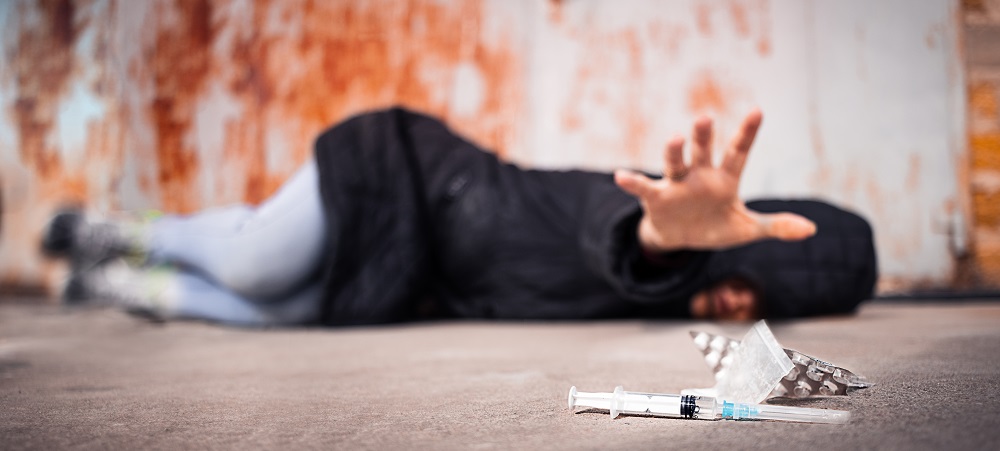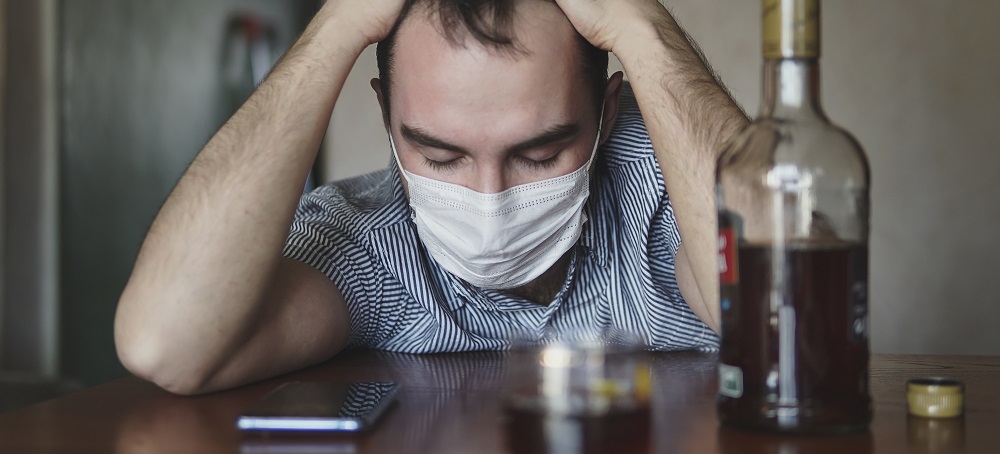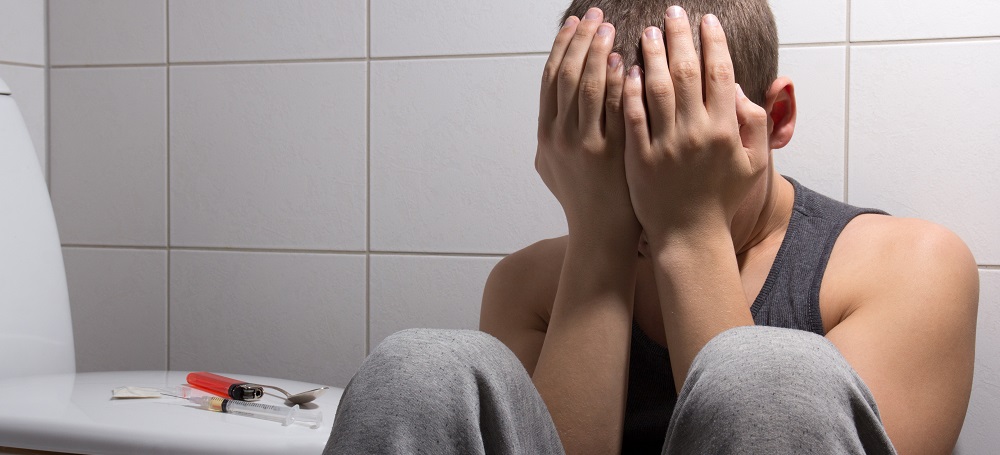Addiction Relapse During COVID-19 Pandemic
Today, the coronavirus (COVID-19) pandemic continues to be a threat to the world, countries are on lockdown, and this has forced millions of people out of work and into isolation. While social distancing isn’t easy for anyone, it is hitting one group’s particularity hard. People who are recovering from a substance use disorder are finding it difficult to maintain sobriety with their routine uprooted, and many of them are having addiction relapse during COVID-19.
These relapses are thought to be brought on by the feelings of loneliness, anxiety, and boredom that many are struggling with. When it comes to addiction recovery, having social support and active involvement in an addiction treatment program both play a huge part. Without these factors, emotional distress and isolation can trigger addiction relapse in no time.
Studies have proven that addiction and addiction relapse has a direct connection to isolation. In the early stages of recovery, being alone could give implications of feeling unsupported and not progressing in the addiction rehab journey. Without the company of the same people who are doing the walk of addiction recovery alongside a patient, morale and determination may drop and could lead to unsuccessful addiction treatment. Social isolation also comes with a big risk of committing violence and other crimes.
Signs of Relapse
Relapses are nothing but common when it comes to the alcohol and drug recovery process. It is estimated that more than half of the people in recovery go through a state of relapse before becoming totally sober. And with the coming of the COVID-19 Pandemic, experts estimate to be as high as 90%. Because of lockdowns and measures taken during this pandemic, recovering addicts are now isolated and are far away from support and families. Now, if you are living with a recovering drug addict or alcoholic, you should pay attention to some signs of relapse in your loved one. Addiction relapse signs include:
- Bottling up emotion
- Poor eating or sleeping habits
- Declining hygiene
- Constant lying
- Talking to past friends who still use
- Skipping or avoiding virtual support meetings
The Relationship Between Addiction and Mental Health
Mental illnesses that co-occur with addiction are common. Studies have shown that almost half of those who are experiencing severe mental issues are struggling with addiction and substance abuse. All of this tells us that there is a deep connection with substance addiction and mental health.
Even if you don’t have a diagnosis of mental illness, symptoms like stress, anxiety, and depression may lead you to turn to drugs or alcohol to cope. This can lead to a substance use disorder. In recovery from addiction, any added stress or anxiety, such as those triggered by external situations like a pandemic, can trigger a relapse.
When it comes to addiction, stress is indeed a big factor, not to mention chronic stress. With a public health crisis on-going, anxiety levels and stress are on the all-time high for a number of people. If not handled properly, it may lead to dangerous consequences. With the probability of your mental health getting worse, so comes the possibility of substance misuse.
How to Cope Healthfully With a Worrisome Pandemic
While this pandemic has the potential to cause a lot of stress and anxiety, there are indeed ways to manage the situation in a healthy way. With this guide, hopefully, you can manage your stress levels and avoid drugs and alcohol.
1. Learn About Addiction Treatment and the Pandemic from a Valid Source
COVID-19 may have given rise to panic to the public which is as much big of an issue as the illness itself. With a lot of wrong information and false news circulation in the web and media, people are led to worry and grow anxious, leading to mass hysteria. That is why it is always good to be informed making you feel more in control of your situation.
Get a balance of good information from the right sources. It is a good choice to turn to legit news sites, government offices and your doctors for proper information. Having the right knowledge with regards to the pandemic is a big help in avoiding relapse as well.
2. Turn Away from Too Much Negativity
Knowing about and being informed about this public health crisis is a must. However, focusing too much on the negativity and bad news about the pandemic can heighten stress levels. Learn only what you need to know. Be informed and then refrain from diving into the negative part of it. Maximize your time by spending it with your family rather than staying in social media and the news. The more that you stay positive and away from bad news will help you avoid relapse.
3. Plan ahead to stay in control
A pandemic is a scary event, but you can prepare for it. Make sure that you are well provided with enough food, water, medications, and other essentials for a couple of weeks. Get your doctor’s opinion about what else you might need. Take every precautionary measure when leaving your home and be on alert at all times. Having the mentality of preparedness gives you an edge over stress, therefore saving you from addiction relapse.
4. Be Sure to Take Care of Your Physical Health
In the face of illness, managing your physical health will not only keep you strong, but it will also help boost your mental health. Get enough sleep at night and have a proper and balanced diet. If the opportunity presents itself, and it is safe to do so, get exercise, get outside for a walk and some fresh air.
6. Start Doing Healthy Coping Strategies
There are stress management techniques out there that are proven to help handle addiction relapse. You can try meditation, yoga or stretching session, deep breathing, or positive visualizations. Also explore activities such as learning an instrument, painting, knitting and more.
7. Boost Your Mental Health Treatment
There is no shame in asking someone for help. Especially in this pandemic, getting treatment is a must to help boost your mental health. Contact your therapist or local addiction rehab centre to explore your options. Being part of an online support group could also help.
8. Avoid Drugs and Alcohol, At All Costs!
If you are in recovery, avoiding alcohol and drugs at all costs is a must! This is an obvious rule for anyone in recovery. Compromising and neglecting precautionary measures for your addiction recovery could only lead to bad habits, therefore making your addiction rehab journey pointless. Distract yourself with other tasks. Get help in managing your mental health. Avoid alcohol intake and drugs. Take smart precautions and all will be well.
Avoiding Addiction Relapse During COVID-19
If you are recovering from a substance abuse disorder, or if you are finding it difficult to remain sober, know that you are not alone. Take care of your body. Get proper sleep, exercise, and eat a healthy diet. Keep in touch with friends and family and do your best to stick to a schedule.
Recovering individuals have a lot of choices to choose from to succeed in addiction rehab during this time. Getting help is the best option for your addiction recovery success. Contact Addiction Rehab Centres now, so we can help you get the treatment that is perfect for you.










